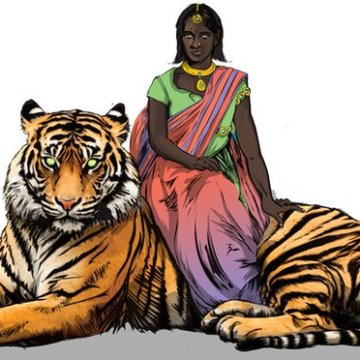- About
- Topics
- Story
- In-Depth
- Picks
- Opinion
- News
- Donate
- Signup for our newsletterOur Editors' Best Picks.Send
Read, Debate: Engage.
I recently had a discussion with a friend, who, innocently, asked me: "So how do you deal with racism?"
Needless to say, my friend is white, and I am brown. I didn't take her interest in racism to be destructive - her tone implied her sincerity - but I've grown accustomed to turning this around to others.
"Well, how do you deal with it?" I asked gently, in response.
She looked momentarily shocked. It seemed that my friend had never really thought of it this way (something that it's taken me years to realize): While people of colour may be the victims of racism, racism isn't a brown or black issue - it's a white issue, mainly. After all, imagine how it must be like to look back at your ancestral past and realize that your forebears were brutal and cruel to other human beings, or that they aided the growth of racist movements, or even to this day, you find it difficult to sleep with the window open because you're frightened a big black robber will break in.
I wish I was joking about this, but as we've seen already this year, even, or especially in industrialized, multi-ethnic countries, like the UK, can still suffer from racism and xenophobia to such a degree, that the country will destroy itself over it.
Anyway, my friend and I discussed the other variants of this problem: Sexism is a man's problem, Homophobia a heterosexual problem, and so on. The point of this isn't to wrest victim narratives away from victims, nor is it to undermine the problem - it is to bring the possibility of speaking about these issues back into a domain for privileged people who may otherwise just ignore the issue, or feel unnecessarily guilty about it. The point is, basically, to talk about these issues in a normal, open way.
So here it is: I am a heterosexual man, and although I try to check my privilege, I'm certain I do and think dumb sexist, homophobic things, and even sometimes racialist ones. I'm human, and have taken on messages which say that I'm necessarily more entitled than some other humans.
It's heartening therefore to be aided in this journey by works such as Priya's Mirror, by Ram Devineni and Dan Goldman. It's a comic book (sequel) about a superheroine, Priya, who helps rape and acid attack victims cope with their attacks, and empowers them to feel stronger about themselves, helping them work towards a place where they realize they are more than their ordeals. It's set in India, and Priya is, significantly, a rural Indian woman.
The comic is targeted to young teenage boys. It is also written by two men - something that may indeed, perhaps rightly, provoke a strong reaction; The work could be seen to usurp space that should be reserved for women, and those who have been the victims of such attacks.
I understand the reaction. I think it is true and valid that voices, especially marginalized and oppressed ones should be heard. In addition to this, it should also be possible that those people in positions of relative power should be able to speak about and think about these problems - so so-called 'women's issues' don't become entrenched as 'women's issues'. Indeed, in my opinion, this need not be a zero-sum game: People should be able to speak about these problems, whoever they are - with the victim (for want of a better word) given the foremost priority.
The point is to be able to think about these things without the all-too-common need to make it about yourself. Paradoxically, the more you're able to frame racism as a white problem, sexism as a man's problem etc. the more empowering the issue becomes for its victims: White people have been susceptible to seductive power narratives, men have exploited their positions of greater relative physical power, heterosexuals have ostracized non-heterosexual people for a million reasons. This actually puts the problem in the mind of the powerful - and steers away from the tendency to speak of women inviting sexual assault, or black people just had something coming to them etc. Finally, it doesn't actually prioritize the powerful person - it helps them understand how they too may be part of a problem.
At least that's how it seems to me. This might just be another dumb sexist thing I thought and wrote about, but as always I'm happy to learn more.
